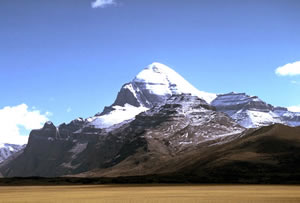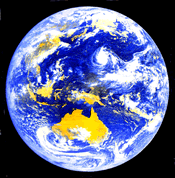Intuition and the Creation of a Better World
Whyte, David
Human beings have an intuitive capacity and knowledge (what the romantic poets called sensibility) that somewhere at the center of life is something ineffably and unalterably right and good, and that this 'rightness' can be discovered through artistic and spiritual explorations that have been honored by all the great perennial religious traditions.
David Whyte, The Heart Aroused: Poetry and the Preservation of the Soul in Corporate America, p. 293
Whether it is a place like Galapagos or a place like our office, if we are serious about our work we tend to find ourselves apprenticed to something much larger than we expected, something that calls on more of our essence than we previously imagined, something seemingly raw and overpowering. The young, exhausted lawyer glimpses, late one evening, the enormous commitment needed for her future partnership; the apprentice violin maker can only marvel at the older man's simultaneous ease and absolute precision with the tiny wood plane. Seemingly superhuman forces always call on individual human beings to simplify themselves. A kind of simplification, achieved day by day, hour by hour, in our given work, right into the essence of what needs to be done. That simplified essence can terrify us …. And that simplified essence is not to be found so easily, as T. S. Eliot indicated, using the metaphor of the sea so brilliantly. It seems to be hidden, between the waves themselves, because indeed, newly arrived at the edge, we have not yet developed the faculties that will allow us to see the pattern in full.
Not known, because not looked for
But heard, half heard, in the stillness
Between two waves of the sea.
Quick now, here, now, always -
A condition of complete simplicity
(Costing not less than everything) ...
T.S. Eliot Four Quartets
David Whyte, Crossing the Unknown Sea : Work as a Pilgrimage of Identity. New York, Riverhead Books, 2002, pp 39-40
There is a good practical reason for encouraging our artistic powers within organizations that up to now might have been unwelcoming or afraid of those qualities. The artist must paint or sculpt or write, not only for the present generation but for those who have yet to be born. A good artist, it is often said, is fifty to a hundred years ahead of their time, they describe what lies over the horizon in our future world. We still have not reached the generation for which Shakespeare ultimately wrote. The artist, of whatever epoch, must also depict this new world before all of the evidence is in. They must rely on the embracing abilities of their imagination to intuit and describe what is yet a germinating seed in their present time, something that will only flower after they have written the line or painted the canvas. The present manager must learn the same artistic discipline, they must learn to respond or conceive of something that will move in the same direction in which the world is moving, without waiting for all the evidence to appear on their desks. To wait for all the evidence is to finally recognize it through a competitor's product.
David Whyte, Crossing the Unknown Sea : Work as a Pilgrimage of Identity. New York, Riverhead Books, 2002, pp. 241- 242

